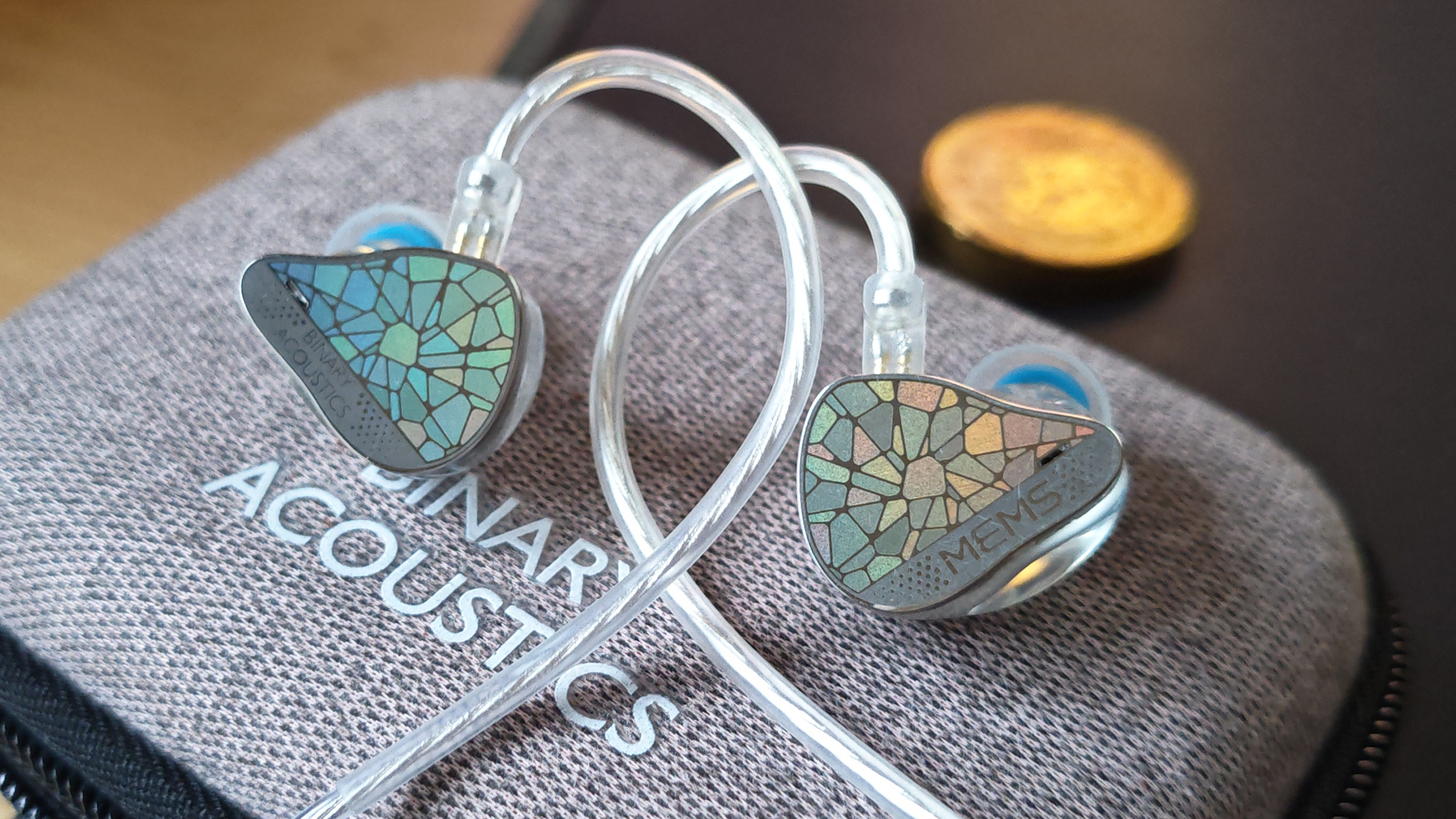How to use an iPad as a drawing tablet with a PC
Want to use an iPad as a drawing tablet with a PC? Here are 3 ways to do it.
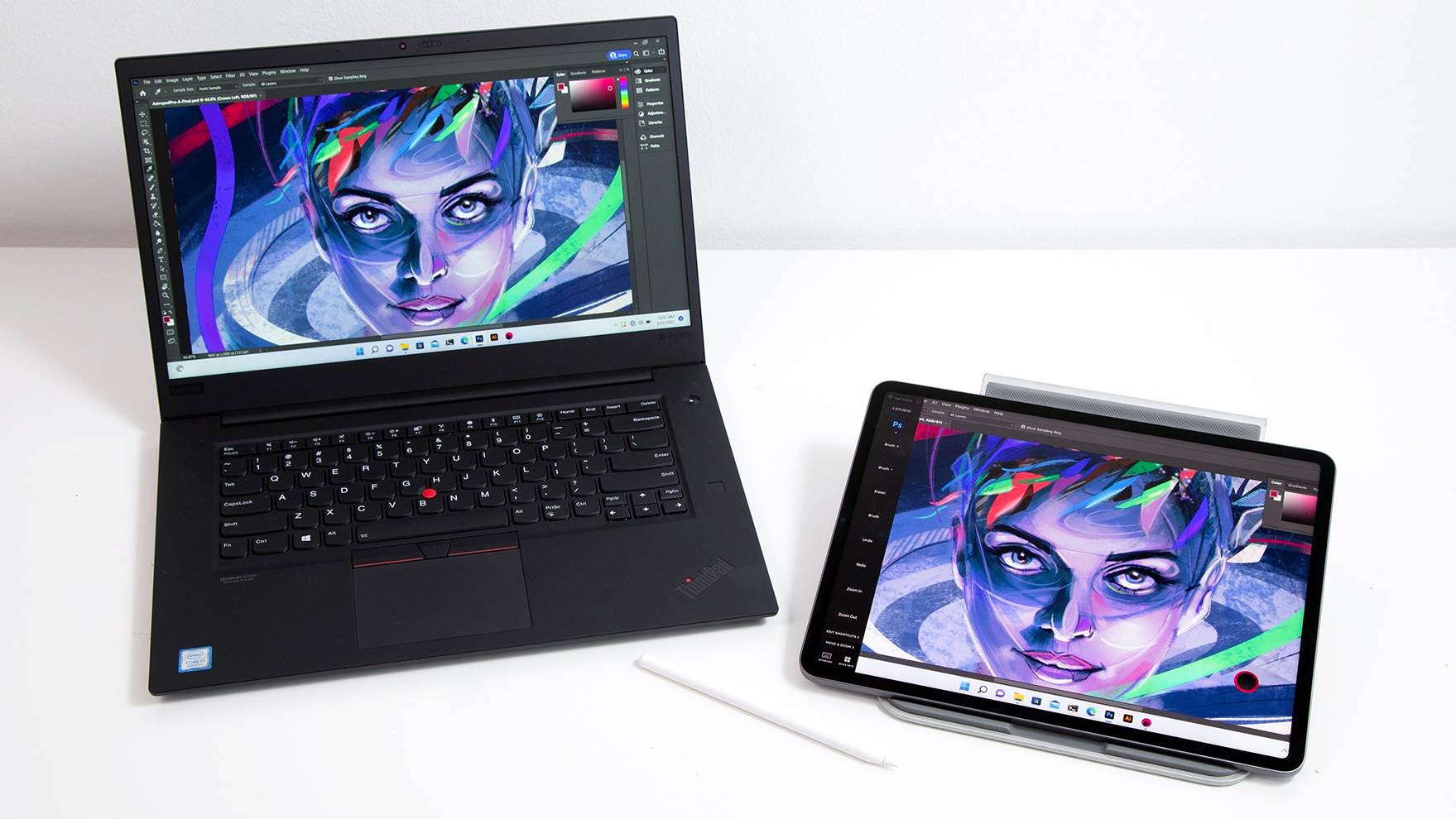
Sign up to Creative Bloq's daily newsletter, which brings you the latest news and inspiration from the worlds of art, design and technology.
You are now subscribed
Your newsletter sign-up was successful
Want to add more newsletters?

Five times a week
CreativeBloq
Sign up to Creative Bloq's daily newsletter, which brings you the latest news and inspiration from the worlds of art, design and technology.

Once a week
By Design
Sign up to Creative Bloq's daily newsletter, which brings you the latest news and inspiration from the worlds of art, design and technology.

Once a week
State of the Art
Sign up to Creative Bloq's daily newsletter, which brings you the latest news and inspiration from the worlds of art, design and technology.

Seasonal (around events)
Brand Impact Awards
Sign up to Creative Bloq's daily newsletter, which brings you the latest news and inspiration from the worlds of art, design and technology.
If you're wondering how to use an iPad as a drawing tablet with a PC, you're not alone. Apple's hardware famously doesn't play well with other systems and generally likes you to keep things in-house, but there are ways to make an iPad talk to a PC, most of which don't require much tech know-how.
Essentially, you want your PC to be able to mirror your iPad's screen, allowing you take advantage of a larger monitor or desktop setup, and while this isn't possible through Apple's own software, a number of third-party apps and programs have sprung up to fill the gap. And with modern iPad Pro and iPad Air models being serious contenders for the best drawing tablet, there are plenty of reasons you might want to do this instead of using a dedicated pen tablet.
One is the fact that iPads have more uses, since they're not for drawing alone. That means you can use the device for drawing as you do for browsing online or editing videos while you're on the move. But you still might prefer a PC over a MacBook. Windows PCs tends to be cheaper for what you get (see our picks of the best laptops for graphics design. We also have a guide to the best laptops for drawing if you'd prefer to make art directly on your laptop).
How to use an iPad as a drawing tablet with a PC using Astropad Studio
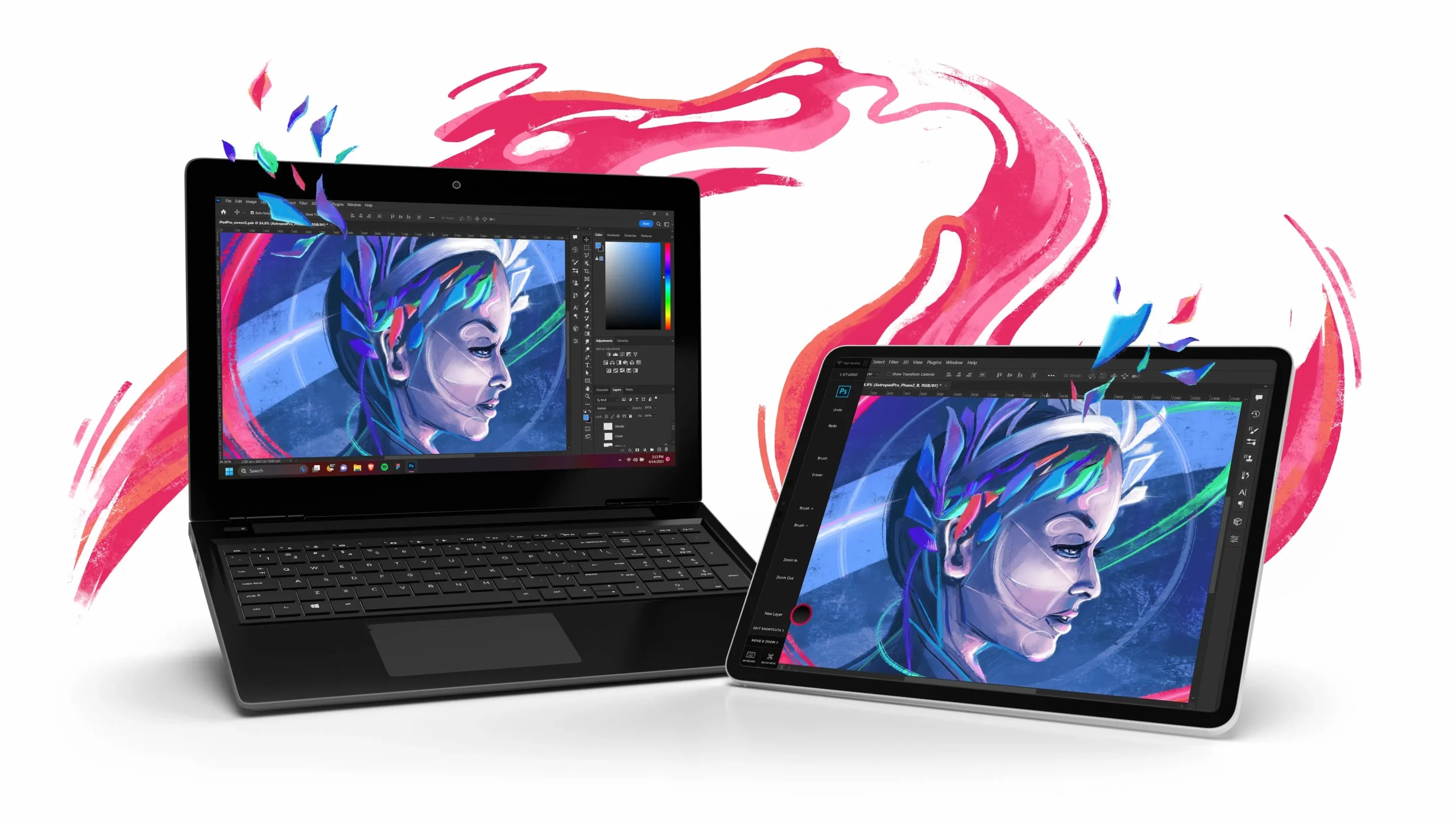
Astropad Studio has been around as an iPad app for years – it used to be one of the best ways to turn an iPad into a drawing tablet by connecting it up to a Macbook (before Apple started doing that themselves with Sidecar). More recently, the makers have expanded the utility of Astropad Studio to provide a way for an iPad to interface with a PC in a venture that was initially known as 'Project Blue'.
You need to download two applications – one for the iPad, and one for the PC. Once you've got those, you connect the iPad to the PC either wirelessly or via USB, and then you're free to use all your favourite drawing apps on your desktop or laptop display. If your setup can accommodate the physical connection then it is noticeably better, with reduced latency.
It's worth noting that Astropad Studio is not just mirroring software, and has been designed to help you use your iPad and PC as a drawing studio. It allows you to create customisable workspaces within your apps, interfacing with Magic Gestures to make it easy to call up specific tools when you need them.
The downside to Astropad Studio is that it's only free for a brief 14-day trial – after that, you have to pay a subscription, which for individuals starts at $79 per year. It's not cheap, but if you are serious about using your iPad and PC as a professional drawing studio, it could well be worth it.
Sign up to Creative Bloq's daily newsletter, which brings you the latest news and inspiration from the worlds of art, design and technology.
How to use an iPad with a PC using Duet Display
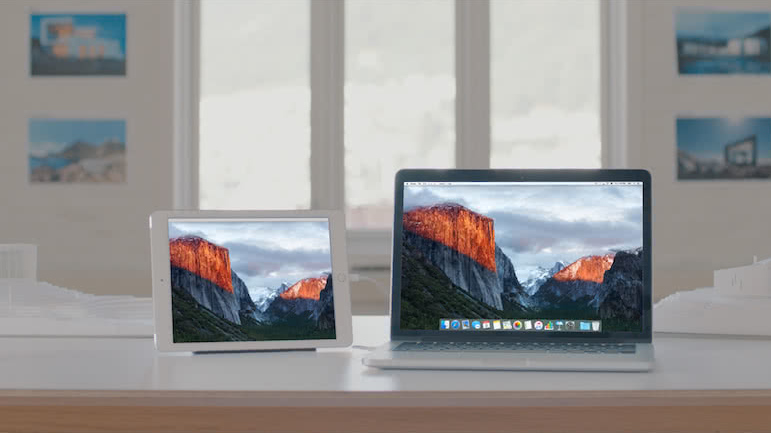
Designed by former Apple engineers, Duet Display is a desktop-mirroring/extending iPad tool that has been around for years – and supports Windows computers as well as Apple ones. It’s a download for the iPad and for Windows; once you’ve got and launched the apps, all you need to do is connect the iPad to your PC via USB. Duet will then boot up automatically and start mirroring or expanding your desktop. You may want to adjust resolution in your PC settings if your monitor resolution is wildly different to that of your iPad, but otherwise, you’re good to go.
The team updates the application regularly, and are continually adding all sorts of improvements. Even the most basic plan, Duet Studio (more on plans below) offers gesture control and support for styluses like the Apple Pencil Pro, with a connection that has effectively zero lag.
Duet Display is optimised to run with minimal drain on the CPU and the battery, meaning you can keep drawing for longer without needing to run off and find a power socket. There is also a highly responsive support team on hand, so if you run into problems getting the software to work, they’ll be able to troubleshoot a few effective solutions.
You used to be able to buy Duet Display as a standalone app with a one-time purchase, but it appears the team have wholly moved over to the subscription model, which is a shame if not a surprise. The cheapest tier, and probably the one suited to most users, is Duet Studio, which starts at$6 per month, billed annually. If you want remote desktop features, you can upgrade to the Pro version, which starts at $7 per month.
How to use an iPad with a PC using EasyCanvas 2025
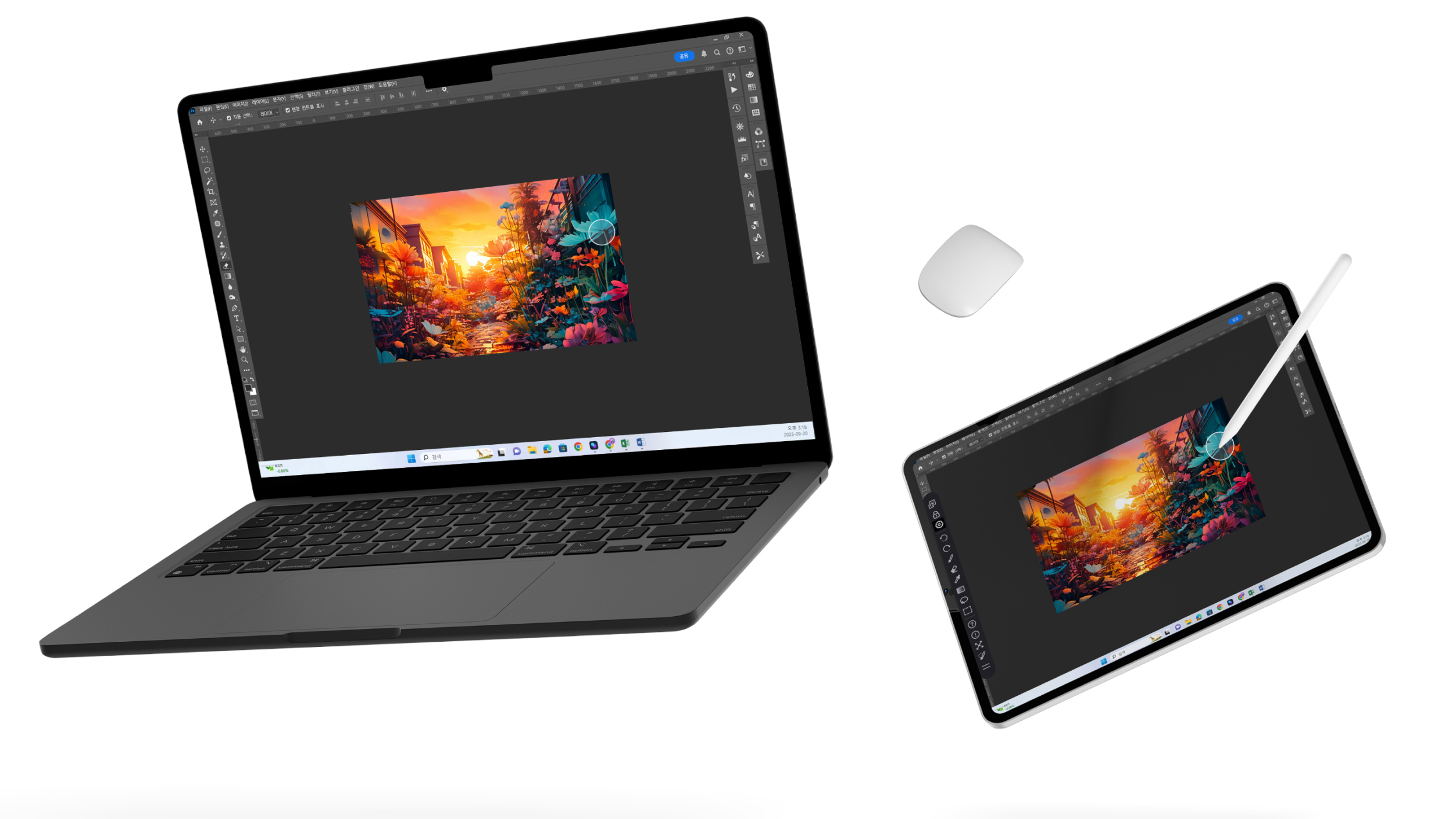
EasyCanvas2025 is an easy-to-use, one-size-fits-all program that will allow pretty much any iPad to mirror or expand the desktop of most PCs. The app is available to download for both PC and iPad, and you only get a 3-day free trial – however, you can pay $12.99 up front rather than signing up for a subscription, which is very welcome is these wallet-punishing times.
EasyCanvas is pretty much just plug and play, so it’s easy for anyone to use. Latency is noticeable but minimal, and the desktop display is rendered vividly. On Windows, you can also connect wirelessly, which is handy. The app supports pressure sensitivity with Apple Pencil styluses, though it may or may not work with your chosen drawing app. If you’re using Photoshop, the manufacturers recommend diving into the settings and changing the pen input from WinTab to tablet PC as a way to get pressure sensitivity working, and also to make sure you’re using a brush that supports pressure sensitivity.
It’s not quite as slick as Duet Display or Astropad, and lacks the dedicated support team on hand, but EasyCanvas is cheaper, doesn't require a subscription, and does work really well.
Using an iPad as a drawing tablet with a PC: frequent questions
Can I use iPad as a graphics tablet?
Of course. One of the best uses of iPad and iPad Pro is for drawing and digital painting, whether that's for graphic design or digital art. The Apple Pencil Pro or Apple Pencil 2 are great for iPad art. Read our Procreate review to see what you can do with an iPad and connect your stylus to an iPad with our guide.
Is an iPad good for professional art?
Yes, some of the best digital art software is available for iPad, and even software for animation and video editing. For drawing alone, you don't necessarily need a lot of computing power and even the basic iPad may be enough, while professionals are likely to appreciate the smoother performance of an iPad Pro or iPad Air.
Many professional artists and graphic designers will use an iPad to start a project and then move onto PC or Mac, some will do all of their work on iPad and continuously swap between desktop and iPad. For tips on choosing an Apple tablet, see our guide to the iPad generations and our pick of the best iPad for Procreate
And if you decide to go for an iPad, see our guide to how to draw on an iPad.
Can iPad replace a Wacom?
iPad is great for on the move digital art but even the iPad Pro is smaller than a Wacom Studio Pro and the standard iPad is less powerful. Wacom is the leading brand for digital art tablets for a reason, these are tailored to what artists need, from high-spec displays and stylus to Quick Keys and accessible features. Most artists will have an iPad and a Wacom (or Huion or Xencelabs) tablet and swap between the two – working on a desktop with a drawing tablet means you can work on a large monitor.

Jon is a freelance writer and journalist who covers photography, art, technology, and the intersection of all three. When he's not scouting out news on the latest gadgets, he likes to play around with film cameras that were manufactured before he was born. To that end, he never goes anywhere without his Olympus XA2, loaded with a fresh roll of Kodak (Gold 200 is the best, since you asked). Jon is a regular contributor to Creative Bloq, and has also written for in Digital Camera World, Black + White Photography Magazine, Photomonitor, Outdoor Photography, Shortlist and probably a few others he's forgetting.
- Ian DeanEditor, Digital Arts & 3D
You must confirm your public display name before commenting
Please logout and then login again, you will then be prompted to enter your display name.
